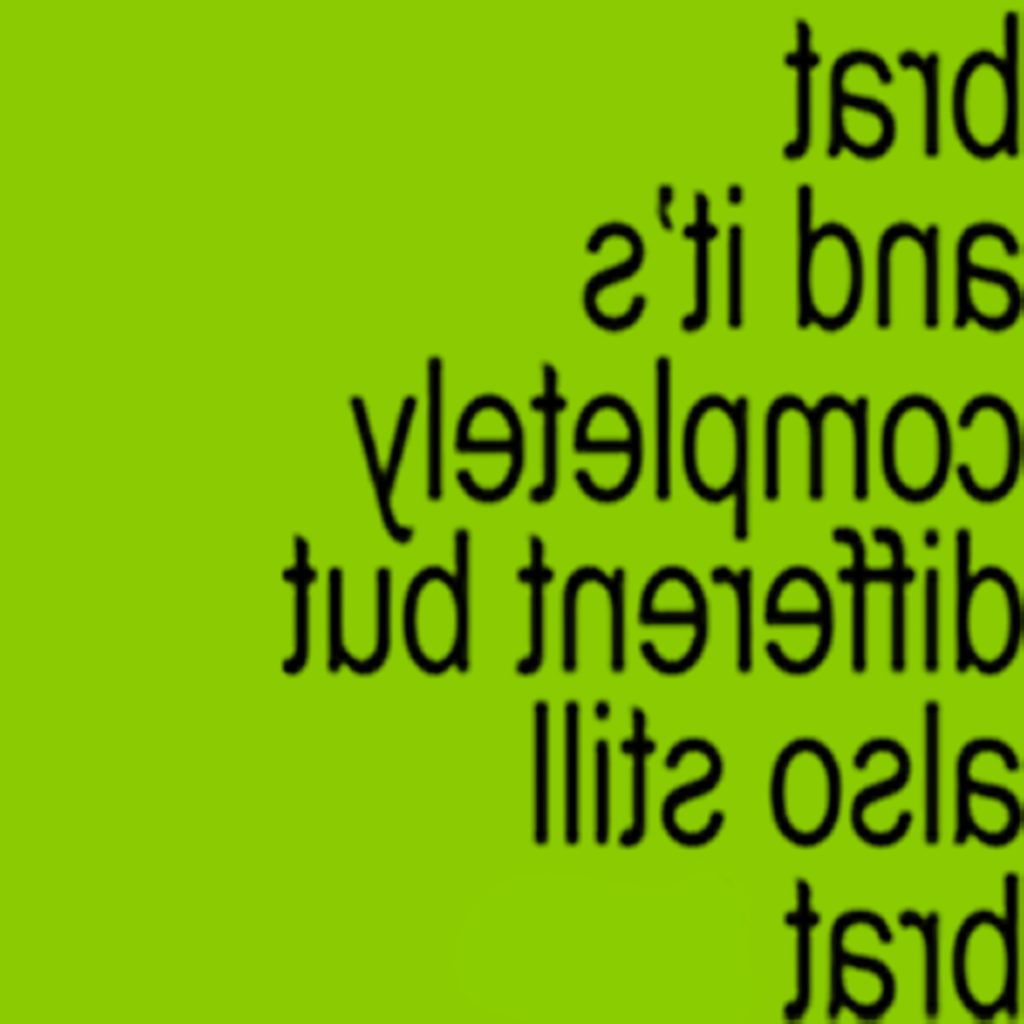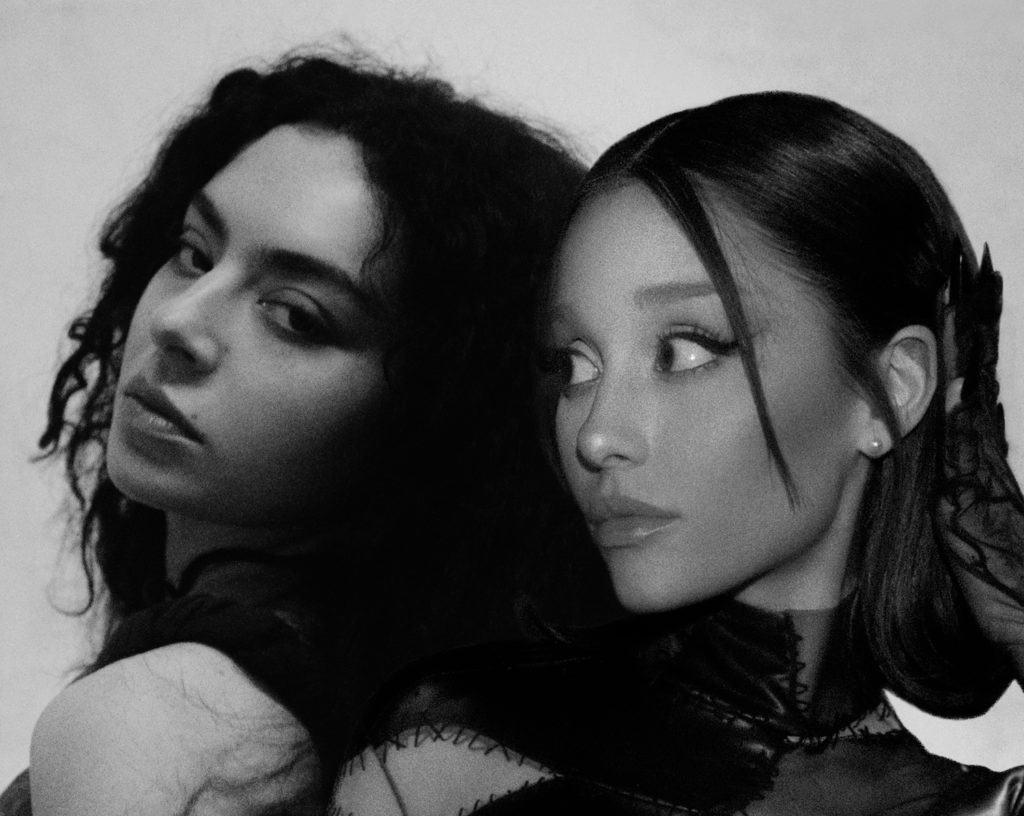
Long before the digital age and social media made everything about the documentation, validation and celebration of the individual ego, art used to be seen as a collective process. Shakespeare, arguably the greatest writer who ever lived, took all his best ideas from preexisting texts, adapting and reshaping them into new works. Centuries before music could be recorded and words written down, folk songs and stories belonged as much to the audience as the performer, changing a little with each retelling or re-performance. An artist’s reputation rested on how well they could create new from old. In our times, this process of revision and rewriting has become vital to feminism, queer and diaspora studies, exposing oppressive ideologies and enabling previously silenced voices to be heard. Dance music too has always centred on remixing and sampling, artists “talking back” to each other, an endless patchwork quilt of melody and lyrics. Long before postmodernism, the idea of one single text with one fixed meaning by a single author had been debunked.
Charli xcx ’s first masterstroke is to draw on all these forms of “rewriting” on “Brat and it’s completely different but also still brat”. Her second is to make out of it an album that somehow, incredibly, is even better than the original. This is no mean feat: four months on, “Brat” has written its place in not just music history, but history, period. It’s not only one of the most critically acclaimed albums of the decade, but has defined a colour (the lime “Brat” green of its cover), an entire summer, hundreds of thousands of memes and Tiktok dances and multiple days’ worth of discourse across social media. It has also been co-opted by the woman likely to be the next US President and had its meaning earnestly puzzled over by politicians on primetime TV.
An avant garde, left-field artist with a niche, heavily queer fanbase
In our scrolling age, where even three-minute pop songs have to be sped up or chopped down to 30 second segments to hold an audience’s attention, “Brat” has now occupied the cultural consciousness for nearly half a year and counting. It’s possibly the most genius marketing campaign of our time. But one with a beating heart and a compelling, vital message at its core. The original album explored the subjectivity of a millennial woman at the intersection of youth and maturity. It was honest, unvarnished and unafraid to be labelled a “brat”, laying bare often shamed feelings of inadequacy, jealousy, complex female friendships, media pressures, grief, fears for the future and an unabashed love of hard partying. Underpinning it was a rock-solid long-term artistic vision.
One of the most thrilling things about “Brat” is, it took over culture without any compromise on xcx’s part. An avant garde, left-field artist with a niche, heavily queer fanbase, xcx had experimented with the commercial pop scene on 2022’s “Crash”, earning the best sales but the worst reviews of her career. It wasn’t authentic and she found it ultimately unfulfilling. With “Brat” she re-embraced her club roots and the signature hyperpop style she’d honed over a decade, working with producers A.G. Cook and the late, great SOPHIE. She knew it was a good album, but never thought it would appeal to the mainstream. She selected the “brat green” cover adorned with only the heavily pixelated album title rather than an expensive photo shoot, against her creative team’s advice, thinking it would at least save some money.
The dizzying success of “Brat” made Charli xcx one of the biggest acts in the world. Many, having grafted for over a decade to get here, would seize the opportunity to nurture a giant-sized ego and keep the spotlight firmly trained on them. Not xcx. She has always been a collaborative artist: even her crossover album, 2019’s “Charli”, featured names – Lizzo, HAIM, Christine & the Queens, Troye Sivan – all far bigger than her at that point. She has also long championed and worked with lesser known queer artists such as Kim Petras, propelling them towards mainstream success. Remixes and collaborations now litter the commercial music charts, but there’s often an underlying suspicion they’re more about boosting sales or grabbing a viral TikTok moment than any overarching creative ideas. Too often as well, female artists are cast as features on tracks by men, seeing little of the critical and financial returns themselves.

„Famous but not quite“
For a project by a female artist to feature not only some of the most powerful women in music (Billie Eilish, Ariana Grande, Lorde, an uncredited Dua Lipa) but also some of the industry’s most acclaimed male artists and producers – Bon Iver, Jon Hopkins, The 1975, Julian Casablancas – is unheard of. It takes a real lack of ego as well to embrace rather than fear the competition and to acknowledge those who helped you along the way to success. What also makes this album’s collaborations so noteworthy is they aren’t about star power, but instead a loving tribute to all those artists who have known, influenced and worked with xcx over her decade-plus of being “famous but not quite”.
Most of the remix versions here cleave closely to their origin tracks in musical terms, but pivoting them more towards the dance floor. Many have already debuted to ecstatic crowds during xcx’s Boiler Room club nights across the US and Europe this summer, such as the bb trickz version of “Club Classics”, and the Addison Rae and A.G. Cook remix of “Von Dutch”. The “365” remix featuring Shygirl is even more dementedly addictive than the original, while the Bladee version of “Rewind” doubles down on the swirling, psychedelic outro of the original to thrilling effect.
It’s in the lyrics that Charli xcx revises and rewrites some of the most powerful narratives from the original “Brat” with her collaborators. In remaining faithful to the musical roots of most tracks, the dialogue between the original and the new is heightened. Individual perspectives become shared experiences, and the passage of time enables new outlooks that are sometimes for the better, sometimes for the worse. The most iconic example of this remains “Girl So Confusing” with Lorde, a reply to the original track’s meditation on the difficult relationship between xcx and a then unnamed fellow female musician. The song turns the macho diss track on its head, cleverly exposing the way the industry pits women against each other, by turning xcx’s subjective viewpoint into a searingly honest conversation and resolution between the two women. An entirely original moment in music, it ends with a genuine vow of mutual support (“I ride for you Charli/You know I ride for you too”) that can’t help but be desperately moving.
Charli xcx all over
There are many other powerful examples of feminist revision here. The Billie Eilish remix of “Guess”, the video of which sees Eilish smashing a giant digger through the wall of xcx’s party, turns the original’s (presumably straight) sexual come-on into a fully-fledged expression of lesbian desire. In the not too distant past, the idea of your straight crush being exposed was something queer people dreaded. Here, it’s simply a loud, proud compliment: “Charli likes boys but she knows I’d hit it…Charli call me if you’re with it.” “Apple”, one of “Brat”’s biggest viral hits, is also queered through a remix with The Japanese House. It takes real guts and a lack of ego to talk honestly in an interview about your fears that a song perhaps sounds too much like another artist, then get that artist to feature on the remix, but then that’s Charli xcx all over.
Elsewhere, the iconic “360” about young internet “It girls” becomes an empowering meditation on age and experience in longtime xcx associates Robyn and Yung Lean’s hands. “I started so young, I didn’t even have email,” Robyn wryly quips, as she demonstrates exactly why being cool isn’t the preserve of youth. On “Talk talk”, Troye Sivan, another frequent xcx collaborator, queers the heterosexual love story, simultaneously deconstructing the way gay men can be fetishised within heteronormativity as submissive twinks.
“Brat and it’s completely different but still brat” is a lot of fun. But it carries real emotional heft too. “Sympathy is a Knife” featuring Ariana Grande seethes with feminist anger. The original looked inward, exploring feelings of inadequacy in the face of a more famous rival, who might or might not be Taylor Swift. On the remix, emotions are turned outward to call out the misogyny of an industry that loves to cut successful women down. The song gives Grande as well as xcx an opportunity to reply to her critics: “Cause it’s a knife when you’re finally on top/’Cause logically the next step is they wanna see you fall to the bottom”.
Caroline Polachek’s duet on “Everything is Romantic” gives space for xcx to reflect on the craziness of the past four months. Where the original was a giddy, intoxicating tour through the early days of xcx’s relationship with her now fiance George Daniel, the more muted but equally powerful remix focuses instead on female friendship bonds. It finds her calling Polachek, an old friend and collaborator, from a hotel room in the middle of the night, pondering how to spin all the plates she’s now precariously juggling and still have a life.
Then there’s “So I”, one of “Brat”’s most heartbreaking tracks, about unprocessed grief, following the death of one of xcx’s closest collaborators, producer SOPHIE. The remix speeds up the tempo to reflect the passage of time, enabling xcx and A.G. Cook to remember shared joyful on and off stage moments, pay tribute to SOPHIE’s legacy and rewrite the tragic narrative that queer voices are too often assigned: “First time I ever felt alive on stage/In Texas in matching latex/That’s as cool as I’m ever gonna feel”.
But any sustainable feminist project needs to grapple with the place of men as well. And it’s here, that some of the album’s most startling musical and lyrical moments occur. In the “Brat” universe, men are vulnerable too, empathetic, supportive, reflective. Julian Casablancas duets on a new version of “Mean Girls” that might be the indie sleaze hyperpop origin track and also reinforces that patriarchy is toxic for us all. Bon Iver’s remix of “I Think About It All the Time” turns “Brat’s” most specifically female-centric song about the classic career vs motherhood dilemma into a dialogue and shared issue, simultaneously plunging xcx into new musical waters.
Turning the inward outward and making the individual collective
And then there’s “I Might Say Something Stupid” featuring the 1975 and Jon Hopkins. Many will greet this with eye rolls, only to be completely disarmed by a post-Taylor, post-internet cancellation Healy dispensing with the dick jokes and attempts at cleverness altogether. What we get instead is a raw, emotional confession of literal and metaphorical impotence with beautiful production in which Healy, who might never have sounded so vulnerable, reveals he too feels “famous but not quite”. These three songs push their artists into new, thrilling territory by taking each’s distinctive sound and making out of it something entirely other but still somehow entirely them.
With the “Brat” project, Charli xcx is rewriting history: of how women relate to each other and to men, of how they can achieve success on their own terms within the music industry, of what artistic collaboration can look like and what it can achieve. Oppression often hinges on isolation and making us feel like our failings, and our chances of success, are purely within our own control. In the end, what this album does is unleash the power of turning the inward outward and making the individual collective. “Brat” is all of us and we are all “Brat”. And we are all welcome.
